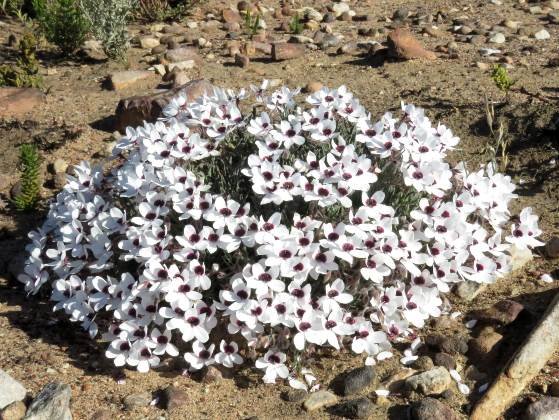Pelargonium tricolor floral dome on bare earth

Author: Ivan Lätti
Photographer: Louis Jordaan
This Pelargonium tricolor shrublet in full bloom was seen in the southern foothills of the Swartberg Mountains in the Little Karoo. There must be a lot of separate inflorescences on the upper branches at this time, remembering that only two to four flowers form an umbel (or actually pseudo-umbel) of the typical inflorescence.
Leaves don’t see much of the sun when flowers take over like this. Photosynthesis cannot be on a high at this time. This inhibitor of sunlight access is plant generated, however, a natural phenomenon signalling good times and all within the regulated, seasonal plant activity cycle.
Some macro and extra-botanical natural events like volcanic action, meteorite or asteroid strikes fill the sky (for long sometimes) with volcanic ash or dust particles, limiting photosynthesis on a big and plant-unfriendly scale.
Anthropogenic interventions in nature, also known as manmade disasters, do the same, as we are unfortunately learning. Reduced food availability and temperature decreases ensue from such events when the rays of the sun cannot penetrate aerial obstructions or pollution, as we are also unhappy to learn (Frankopan, 2023; Vlok and Schutte-Vlok, 2015; Moriarty, 1997; Bond and Goldblatt, 1984; iNaturalist).

